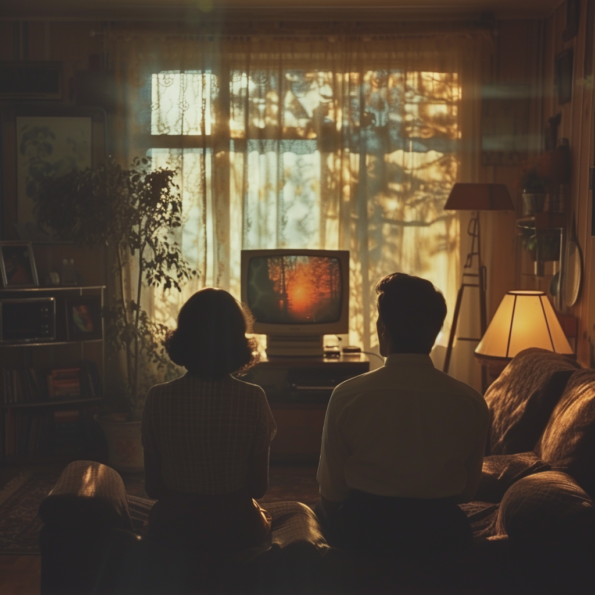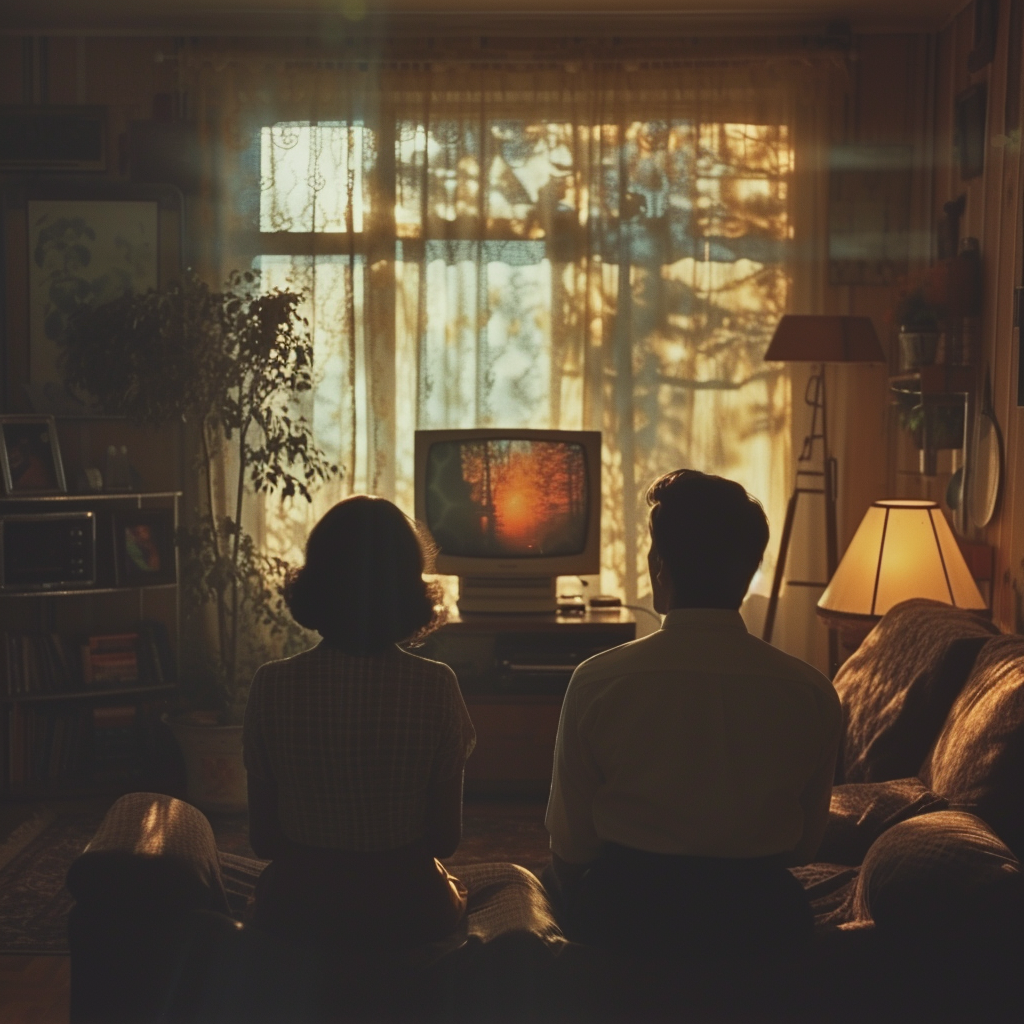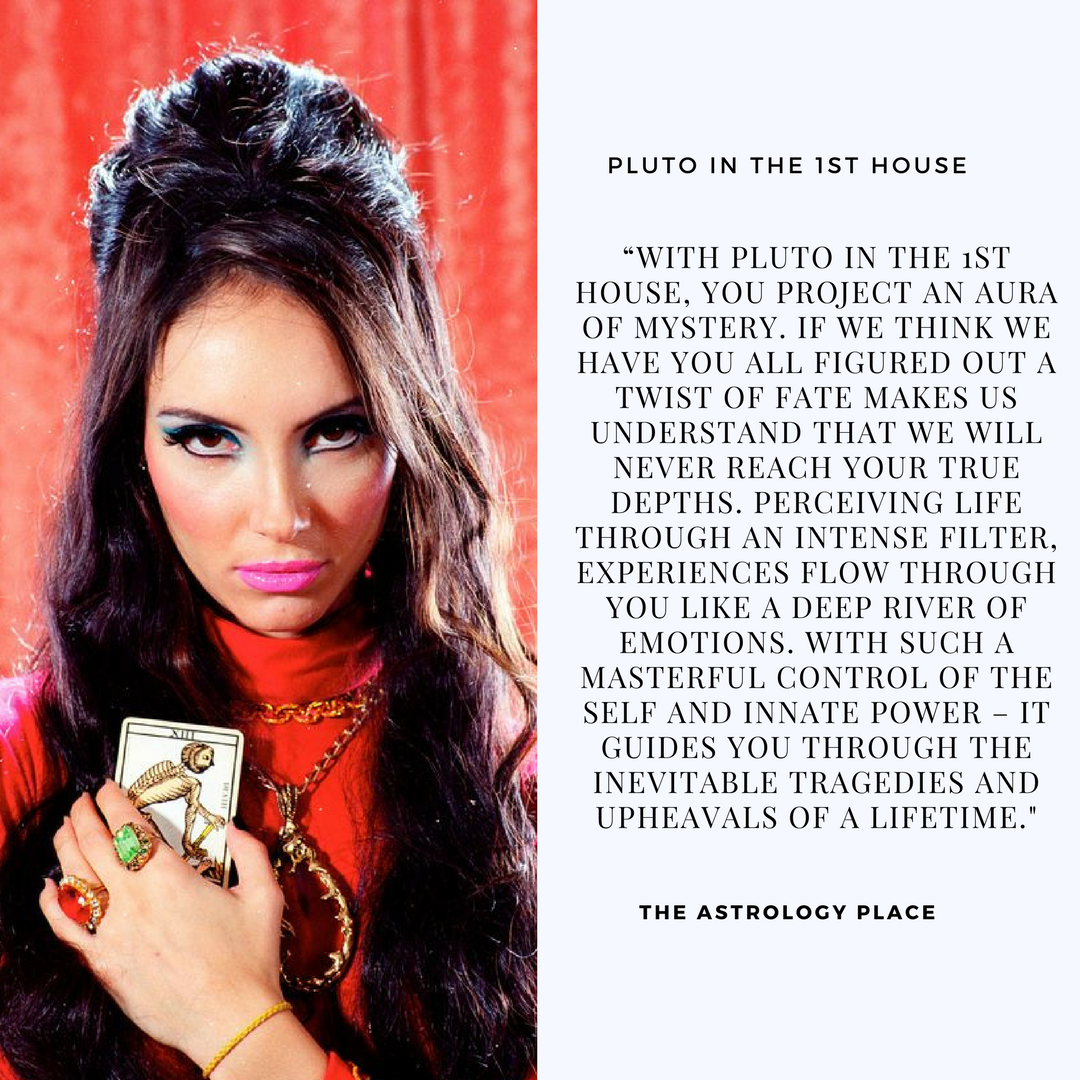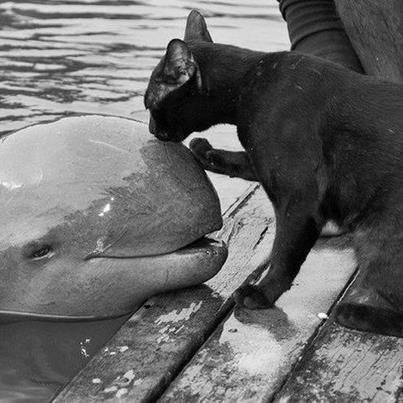 In the evenings, I’ve chosen to indulge in a TV drama with my partner, offering us a fine dose of Pluto’s intensity, yet experienced from the comfort of our chairs and sofas. Wrapped in warmth, we can watch the dramatic events unfold from the safety of our cozy zones. With my partner by my side, I embark on yet another journey—not into the outer world, but inward, delving into the vast landscapes of human emotion and psyche. This exploration is courtesy of the dramatic plays of shadows and light, unfolding in the theater of our living room. TV dramas can be viewed through a Plutonian lens, as they are associated with themes of depth, darkness, mystery, and tragedy. They’re deep, dark, often mysterious, and let’s be honest, they’ve got a bit of that tragic element we all secretly crave. Why? Because they mirror the very essence of our souls.
In the evenings, I’ve chosen to indulge in a TV drama with my partner, offering us a fine dose of Pluto’s intensity, yet experienced from the comfort of our chairs and sofas. Wrapped in warmth, we can watch the dramatic events unfold from the safety of our cozy zones. With my partner by my side, I embark on yet another journey—not into the outer world, but inward, delving into the vast landscapes of human emotion and psyche. This exploration is courtesy of the dramatic plays of shadows and light, unfolding in the theater of our living room. TV dramas can be viewed through a Plutonian lens, as they are associated with themes of depth, darkness, mystery, and tragedy. They’re deep, dark, often mysterious, and let’s be honest, they’ve got a bit of that tragic element we all secretly crave. Why? Because they mirror the very essence of our souls.
It’s compelling viewing, like staring into the abyss and finding it’s got a subscription to Netflix.
Some naysayers wag their fingers, preaching the gospel of negativity about indulging in such drama.”Negative!” they cry, “Harmful to your spirit!” I recall the wisdom of a channeled entity, Seth, a non-physical consciousness who dances through the universe with insights that tickle not just the mind but the soul. He expressed something similar to, “Do not fear TV drama, for watching the news is like marinating your soul in despair.” The news is the real vampire at the window, draining your spirit with its relentless barrage of doom and gloom.
Seth Speaks: These dramas, crafted as dreams of human folly and redemption, supposedly harm us; instead, it’s the relentless barrage of the news, the real-world despair untempered by the arc of atonement, that weighs heavily on our hearts. For, in the realm of drama, unlike the often grim tales spun by our news outlets, there is structure, purpose, and, most crucially, resolution.
Because, at the heart of it, we’re beings of story, of drama. We don’t just walk through life; we leap, we fall, we rise. Our souls crave the narrative, the conflict, the climax, and yes, the cathartic release. It’s the essence of existence! TV dramas are not just tales told in the twilight; they’re reflections of our own journeys, our struggles, our triumphs. Characters wrangle with their demons, dance with their shadows, and so do we, in the grand drama of life.
The catharsis, the sweet release at the end of the act. It’s therapeutic. It’s as if through these stories, we’re given the keys to the kingdom of our own inner turmoil. We see characters grow, evolve, overcome. And what do we do? We grow alongside them. It’s a shared victory, a collective sigh of relief as we see them, and thus ourselves, begin anew. Life, in its infinite wisdom, moves forward. Characters find new depths, new strengths. And guess what? So do we.
Yet, I must confess, the compelling nature of these dramas is not only their ability to ensnare our attention with the dark, the mysterious, or the tragically beautiful. Within the crucible of these dramas, characters are forged in the fires of adversity, emerging not as they once were but transformed, imbued with new depths of understanding and maturity. It’s a process of alchemical transmutation, where through trials and tribulations, the base lead of our beings is turned to gold.
It is the true gift of our evening engagements with the TV drama. We are engaging in a soulful exploration of the human condition, finding within these stories a mirror to our own inner depths, our own shadows, and lights. For those who have been dubbed drama queens (or kings) for their dedication to televised dramas, fret not. Your pilgrimage through the trials and tribulations of on-screen characters is not just escapism; it’s a deep dive into the human condition, a foray into the landscape of the psyche.
You see, these narratives, dark as they might initially appear, serve as modern-day parables, mirrors reflecting our own struggles, fears, and triumphs back at us. The themes—oh, the themes!—murder, betrayal, rape, abduction, domestic abuse, the sting of abandonment, and the myriad of calamities that befall the human spirit—are indeed heavy. Yet, they resonate because, on some level, we’ve brushed against these shadows in our own lives, or feared that we might.
Now, to say that watching such dramas is a way of processing our own issues is not to oversimplify the complexity of human emotion and experience. Rather, it’s an acknowledgment that within these extreme scenarios, there are grains of truth, moments of recognition. How do characters move their grief, their guilt, their rage? How do they rebuild their lives from the ashes of their personal cataclysms? Herein lies the psychological insight, the cathartic release, and perhaps, a strange sense of guidance or understanding for our own paths.
Pluto, the planet of transformation, of deep dives into the underworld of our consciousness, would nod in approval at this journey. It’s all about the metamorphosis, the shedding of old skins, and the rebirth into new forms. TV dramas, in their intensity, mirror Pluto’s own penchant for bringing the dark into light, for forcing growth through crisis.














